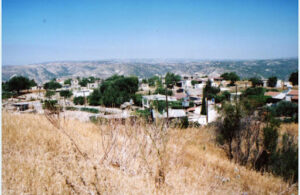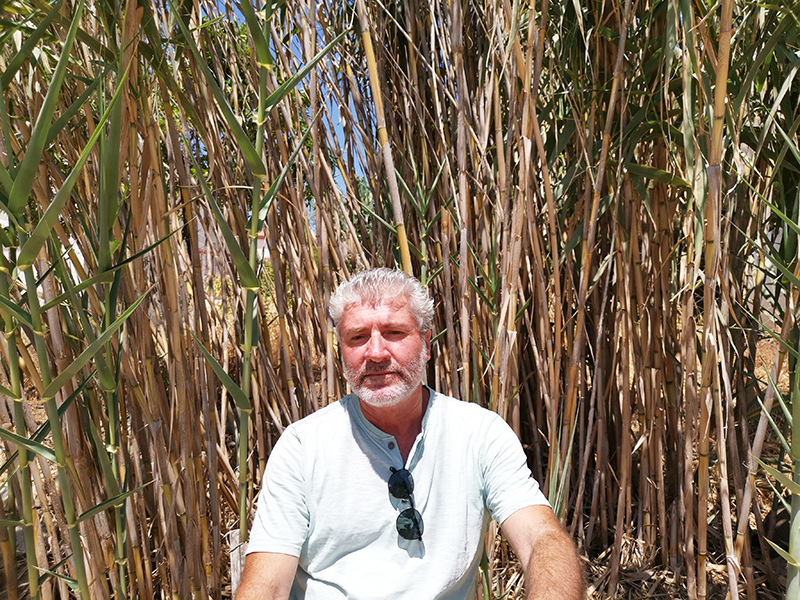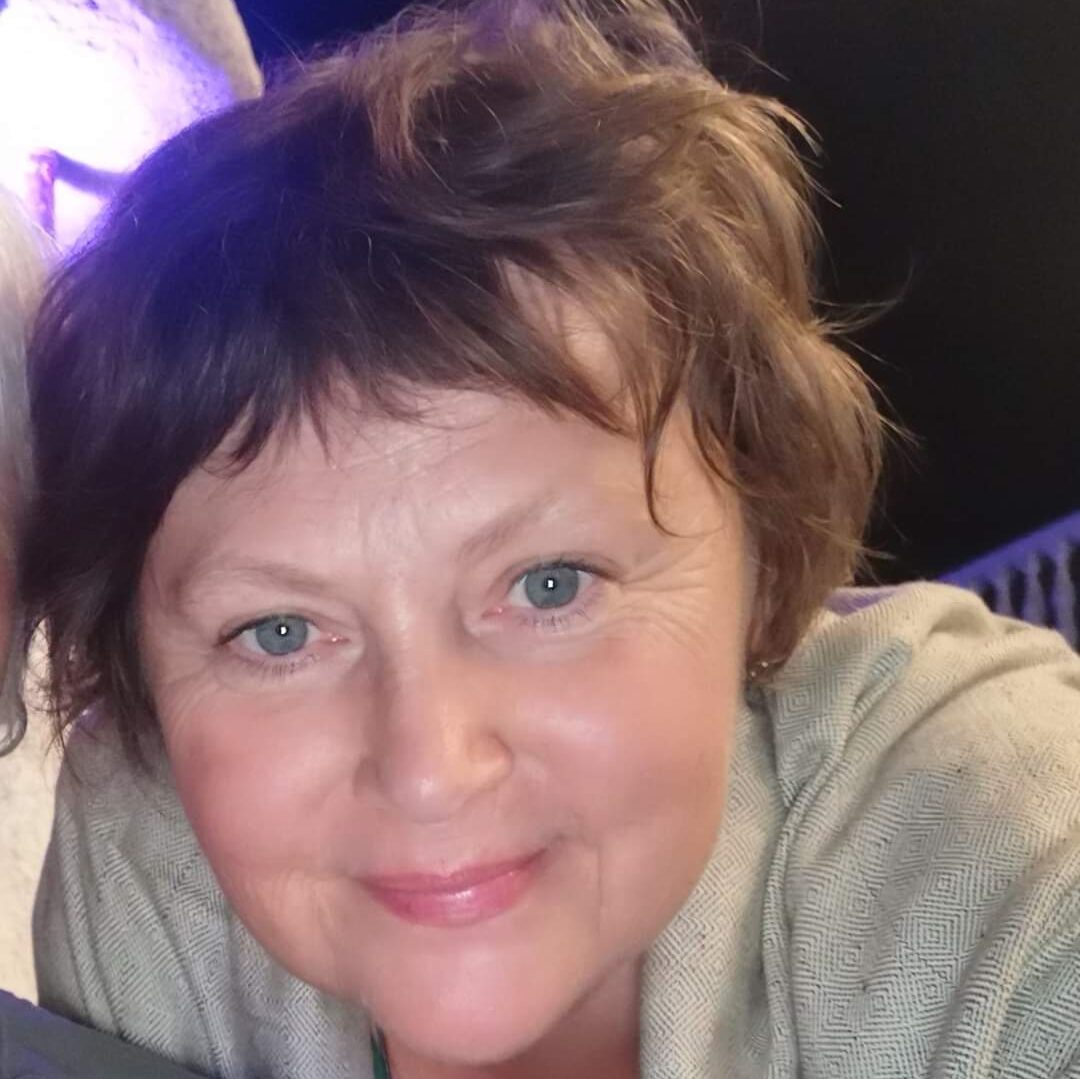In a well-known Turkish Cypriot writer from a Paphos village, AGNIESZKA RAKOCZY finds a rebel intent on adventure whose unforgiving analysis of the island’s political situation is driven by his curiosity
For someone as forthright in conversation as in his poetry, it comes as no surprise to learn that Gurgenc Korkmaze, one of the leading contemporary Turkish Cypriot poets, ascribes his commitment to poetry to the discovery early in life that he who commands words can goad and provoke and by doing so can hold those in positions of authority to account.
Gurgenc is known for his near forensic ability to unsparingly examine the plight of the individual trapped in the crossfire of the island’s divisionist narratives, and his account of how this love affair with the power of words first started is much pithier and firmly rooted in his innate rebelliousnous.
“It was at school, my secondary school”, the 52-year-old writer says.
“Our teacher gave us homework. We were to write a poem on any subject we wanted. Four students — myself and three others — didn’t write anything. Next day the teacher stood us in front of the class and said something like: ‘Children, you are all like flower pots but while real flowers will grow in most of these pots, in these ones here [pointing at us] there will only be weeds.’”
The young Gurgenc was angered by the teacher’s words.
“I felt humilated. I was furious. I went back home and wrote a poem and put a title on it –‘They don’t know that teachers are devils’. I gave it to her next day. It wasn’t a very good poem but I wrote so many bad things in it that it shocked her. She called my parents in. And for me her reaction was a revelation. I saw the power of words.”
We are sitting in the Lorenzo Cafe, close to the Buyuk Han in north Nicosia’s old town. The coffee shop is co-owned by one of Gurgenc’s friends from the village of Lysi, where their families ended up after 1974.

Stavrokonnou
The Korkmazels wound up there from Stavrokonnou, a remote Troodos village, in the Paphos district.
“We people from Stavrokonnou, we are the wildest people of Paphos,” Gurgenc tells me, a glint in his eye, his pride visible. “We are mountain people. You can see it even in the way we walk — more like animals. We don’t walk on flat surfaces. Eoka B never managed to capture the village. They tried but never got there. People from the other small Turkish Cypriot villages in the area used to come to hide with us.”
Born in 1969, Gurgenc says he doesn’t remember too much from his village childhood. “My parents were farmers. They had a garden and a vineyard. They were making zivania. I think I remember some stuff but you know how it is. I suspect it is more what my parents told me later. What I do remember is the fear and panic when Eoka B surrounded the village several times because these are extreme feelings and a child picks them up naturally.”
In 1974, the family left the village for the British bases from where they were evacuated to a refugee camp in Iskenderum in Turkey. There the men were separated from the women. Those were hard times for Gurgenc’s mother, coping with three children, including a six-month-old baby.
In 1975, the family returned to the island, stopping in Neo Chorio village not far from Nicosia for six months before moving on to Lysi. “Lysi was where people from Stavrokoonu were sent,” Gurgenc explains. “Actually because they had resisted Eoka B so well, they were regarded as heroes and given a choice of two villages. They could either go to Lysi or Akanthou. They chose Lysi.”
Again, Gurgenc remembers his years in Lysi as very happy times. “We were free and we had so much to explore around us.”
However, not everything was rosy.
The house the family lived in was on the outskirts of the village. Close by was a Turkish army sentry post. Little Gurgenc was often sent by his parents to deliver water and fruit to the soldiers stationed there.
“One of them invited me inside the post and started touching me. Outside, I could hear birds making noise. They were bee eaters, the most beautiful birds that can be seen in Cyprus. It was the time of the year when they visit the island.
“I ran away and never went back. I could sense something was wrong. But I didn’t tell my parents. I thought they would blame me. It’s what children think at this age. Many years later I published a story about it in Africa newspaper. And later again in a book. The story was called ‘The time of bee eaters’.
“Afterwards, many people, especially women, contacted me and said it had happened to them as well.”
Did he talk about it with his parents later?
“No, I didn’t but they read my book so they know. Once I wrote about it I got rid of it and it was a big relief. Now I can talk about it.”
Laughingly, Gurgenc admits to having been one of those independent children, always set on doing their own thing. He admits to disobeying his father, he was defiant of his teachers and his co-villagers thought of him as a trouble maker.
After graduating high school and a couple of unsuccessful attempts to study (“universities make you lose time and I was a rebel, I wanted adventures”), Gurgenc knew it was high time for him to step away from the island. And so he headed off, first to Istanbul and from there to Turkey’s then equivalent of Ibiza, the seaside resort of Fethiye. “It was paradise, a dream place. I found a job in a bar full of backpackers from the US, Australia, New Zealand, Scandinavia. Every week I had a new girlfriend. Drugs were cheap, there was plenty of marijuana. I was 20. I was working 16 hours a day. I had left a very conservative country behind me and I could not belive this freedom. I loved it.”
Still, after five years, Gurgenc had had his fill and was ready to leave. “It was too degenerate. Too much drugs, alcohol, sex. It wasn’t healthy. I was losing it.”
He travelled to Frankfurt but, not knowing German, it was not the right place for him. Before long he was on his way again, this time to London. “I knew many people there. I thought life in London would be easy but I was wrong. I didn’t like being there. In London people don’t have time for each other, they don’t have love for each other. All they care about is money. They worship money and run for money.”
A girlfriend from Manchester suggested he should move there and he did, taking to it immediately. Finally he was in the right place. He got a managerial job in a bar, fell in love, even married.
And what happened to writing?
“It has never stopped.
“I published my first book in 1992, first here in Cyprus and later in Turkey.
“And while working part-time, in my free time I was writing short stories and poems or doing translations. It was only when I was in Fethiye that it was difficult because there I was working much longer hours so I wrote less. However, in the UK I was producing a lot. I was always in libraries, reading and researching. I read lots of books about Cyprus, world literature, I was reading about birds. I spent five-six hours a day in a library. It was a huge opportunity.”
Gradually Gurgenc began to realise that he wanted to return home.
“When I left Cyprus I said ‘I will never come back’. But this feeling lasted only for a few years. Then I started coming for holidays to see my mum, and I started having dreams about Cyprus. So I thought why not? Now that I had made all my dreams outside of Cyprus come true, I could go back.”
He came back for a few months, then went back to the UK, before returning for good at the end of 2002. In all, he had been away from the island for 12 years but has never regretted his decision to return.
“Living abroad for so long enriched my life a great deal and widened my perspective. I came back with a lot of fire, lots of projects I wanted to write,” he says. “I am still drawing on some of those experiences. Then, luckily, several months after I came back the crossings opened. This helped a lot. I am not sure I would still be here if this had not happened.”
Gurgenc admits that “the other side of the divide” has always fascinated him. He tried twice (only once with success) to cross to the south before 2003. The first time, with his younger brother Ergenc (today a well-known photographer living in Paphos) and a girlfriend. “We were caught by Turkish Cypriot police somewhere in the fields close to Pyla, taken to a police station and eventually let go with a mild warning”. The second time, he was smuggled through with another Turkish Cypriot poet in the boot of a car that was owned by someone who had permission to cross.
“It was in 2002. We visited some fellow poets in Nicosia, took a bus to Paphos and a taxi driven by a Pontian Greek who understood Turkish to Stavrokonnou. We wanted to see where we came from. I took a photo of my family house in the village only to realise later that it was the wrong house. A year later they opened the crossings.”
Gurgenc can be merciless in his turn of phrase and is well known for his unforgiving analysis of the island’s political situation. Some of his poems feature the most precise descriptions of the absurdity of the division we all have to live with.
“Poetry should be beauty, magic, melody but sometimes magic is difficult to catch,” he admits. “Some of my poems are more like statements than real poetry because such statements are necessary in a place like Cyprus. There are some things you just have to tell people about.
“Everything that surrounds us here is political, so, yes, I am a political writer because I live in Cyprus. This is what happens to you when you live in Cyprus. You have no choice. You have to get involved.”
He relishes the fact that his poems can provoke and startle when he writes about taboo subjects such as death, sex and drugs. “When I was young, I thought the biggest inspiration was love and eroticism but now I think it is death.” However, he admits that his writing has become softer with age, that as he gets older, the poems are less angry, reflecting a dark humour that “is much healthier for me”.
And it is as gloomy as it sounds. “I don’t deal with hope any more. I don’t have hope,” he says. “Everybody talks about hope. But I am not a religious person so there is no hope for me. We are all going to die so what hope can we have anyway? And also ecologically what hope do you have? So I removed hope from my life and replaced it with curiousity. And curiosity is something that we don’t have enough of in Cyprus because Cypriots are the least curious people I know.”
Does lack of hope makes him happy though? Gurgenc looks at me with a big smile: “I am the happiest person I know. Happiness doesn’t come from society. Eighty per cent of happiness comes from within… and the best antidote for the poison we get from the outside all the time through our eyes, nose, mouth and ears is art, nature and love.”
And the Gurgenc who says he is without hope rejoices in all of these — the art he makes, the nature surrounding him and the family he loves.
He is happily married to well-known actress, educator and peace activist, Oya Akin. “They ask us what the secret of a happy marriage is and I say it is very easy, both Oya and I are anti-marriage, we are artists and free, we have no expectations”.
They have two children and Gurgenc maintains a good balance between his work and family life. “If I am working and my kids call me I leave work and go to them. I can leave poetry and go back to it any time, no problem. My kids are my priority.”
He writes at a table in the kitchen. “I get up early, in the mornings. My mind works better and the kids are still sleeping”. He writes slowly. “For the last six years I have been working on a new collection of poems and it is almost ready. I have 50-60 poems. This is not a lot.”
And it can be a painstaking process. “It goes like this: you write a poem, you read it, it is a nice poem but here and here and here, you see that these words spoil its music or its meaning. So you look for the right word and keep on trying different things and it is not working… sometimes you work on the same poem for a very long time, maybe after two years a word comes and you say ‘that is perfect’”.
“I work on poetry every day but I don’t write poetry every day,” he confides, adding with a grin: “When a new writer comes and asks me how he or she should start the first thing I always say is: ‘get a big rubbish bin’.”







Click here to change your cookie preferences